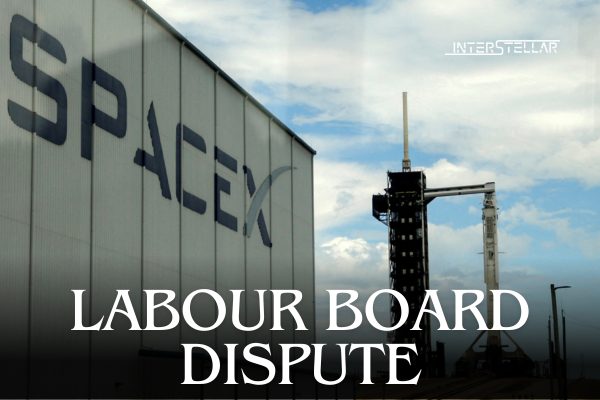Labour Board Faces Legal Challenges from Amazon, SpaceX, and Others
The National Labour Relations Board (NLRB), responsible for safeguarding private-sector workers’ rights to unionise and advocate for better conditions, is under mounting legal scrutiny. Companies such as Amazon and SpaceX, along with conservative groups, are challenging the board’s authority in a wave of lawsuits. These cases aim to dismantle its enforcement powers, accusing the agency of violating constitutional principles.
Amazon and SpaceX Lead the Legal Offensive
Amazon and SpaceX are at the forefront of this legal campaign, asserting that the NLRB’s structure and administrative processes infringe on constitutional rights. Both companies argue that the agency’s members, appointed by the president, should not be shielded from removal at will. Additionally, SpaceX contends that the president should have authority to dismiss the administrative judges who handle the board’s cases.
Amazon’s case centres on its refusal to negotiate with a union at a New York City warehouse, while SpaceX disputes allegations of firing engineers critical of CEO Elon Musk. These lawsuits, alongside others, are being heard by the conservative 5th U.S. Circuit Court of Appeals in New Orleans. This court, known for curbing federal agency powers, has become a favoured venue for such cases.
Implications for the NLRB and Labour Rights
The outcome of these lawsuits could disrupt the NLRB’s operations. If appeals courts deem its structure unconstitutional, the board’s ability to address alleged labour violations could come to a halt. Some experts believe these challenges aim to delay justice and reduce the board’s effectiveness.
Jennifer Abruzzo, the NLRB’s General Counsel and a Biden appointee, reaffirmed the board’s legitimacy, stating that similar claims were dismissed by the U.S. Supreme Court decades ago. She expressed confidence that justice would prevail despite the resource-draining legal battles.
Political Dynamics and Broader Impact
President Biden’s pro-union stance has reinvigorated the NLRB, fostering a resurgence in unionisation efforts nationwide. However, this momentum has triggered backlash from employers like Amazon, Starbucks, and Tesla, who are actively resisting unionisation. A potential second term for former President Trump could further jeopardise the NLRB. His allies, including Musk, have advocated for reducing federal agency powers.
Legal observers note that even unsuccessful lawsuits can serve as a stalling tactic, delaying NLRB decisions on labour disputes. Critics accuse companies of “judge shopping” by filing cases in Texas courts, overseen by the 5th Circuit, to gain a strategic advantage.
Despite these challenges, unions are gaining traction, with elections and victories reaching historic highs. Whether the NLRB can withstand these legal and political pressures remains to be seen.
With inputs from Reuters





